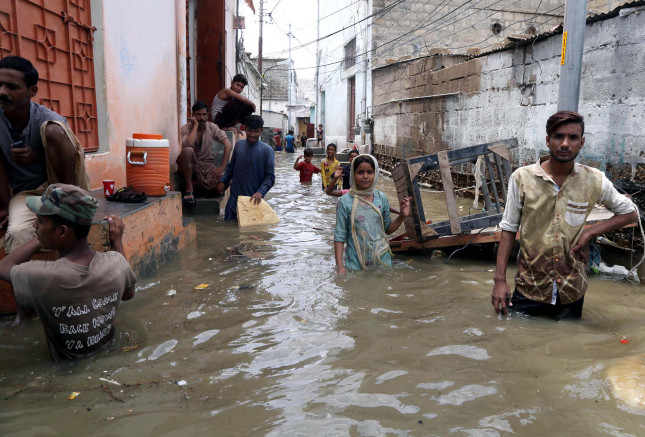-
Michael Kugelman, The Third Pole
Why was Pakistan Left out of Biden’s Climate Summit?
April 8, 2021 By Wilson Center Staff
Given that Pakistan is one of the most climate-vulnerable countries in the world, Washington shouldn’t write it out of the climate change cooperation script
The White House has announced the names of 40 world leaders invited by US President Joe Biden to participate in a virtual global climate summit on April 22-23. Many Pakistanis are unhappy – and with good reason – that Prime Minister Imran Khan isn’t on the list.
According to a White House statement, the invited leaders represent countries that are top polluters, show strong climate leadership, are “especially vulnerable” to climate impacts, or are “charting innovative pathways to a net-zero economy”.
Islamabad has suggested that Pakistan’s low emissions rate, coupled with its globally recognised tree-planting initiatives, qualify it for the summit. (It’s worth noting, however, that Pakistan doesn’t exactly have a stellar record on carbon emissions – as evidenced by its high deforestation rate, its heavy consumption of dirty fuels, its intense industrial production and its poor air quality.) But it is Pakistan’s acute climate change vulnerability that most justifies Khan having a seat at the table.
Pakistan’s heavy dependence on agriculture, serious water shortages, densely populated coastal spaces, and susceptibility to floods and drought underscore its fragility. It is ranked as one of the world’s 10 most climate-vulnerable nations. With a population of 220 million – the world’s fifth-largest – there are immense human dimensions to this vulnerability. All other top-10 population countries received invitations to Biden’s summit.
So why wasn’t Pakistan invited? Some Pakistanis depict it as a deliberate snub – a gesture to convey Pakistan’s lack of global importance, or a hardball tactic to compel Islamabad to help Washington achieve goals in Afghanistan or on counterterrorism. This is unlikely. US-Pakistan relations are relatively smooth right now, and Washington has little interest in antagonising Islamabad – especially as it cooperates closely with Pakistan to kickstart a floundering peace process in Afghanistan.
Continue Reading on The Third Pole
Sources: Bloomberg, Geo News, German Watch, Gulf News, The New York Times, The White House.
Photo Credit: Residents facing difficulties due to flooded areas caused by a heavy downpour of monsoon season, on August 22, 2020, in Karachi, Pakistan, courtesy of Asianet-Pakistan, Shutterstock.com.
 A Publication of the Stimson Center.
A Publication of the Stimson Center.



